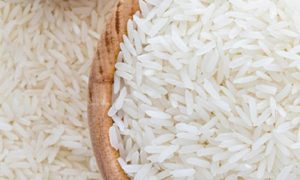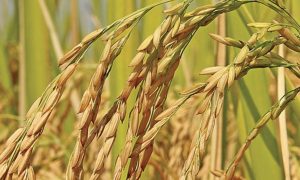Rice and Roads: How Japan’s Trade Tensions Threaten Auto Exports and Food Security

A looming U.S.-Japan trade clash over rice tariffs threatens to disrupt auto supply chains and inflate food prices. Japan’s refusal to ease rice import limits risks triggering U.S. auto tariffs by July 9. Japanese automakers face margin pressure, while rising rice costs strain consumers. Investors are advised to avoid Japanese auto stocks and pivot to resilient U.S. sectors.
The simmering trade war between Japan and the U.S. has reached a boiling point, with agricultural tariffs on rice now acting as a geopolitical pressure valve for an automotive sector facing existential risks. As the July 9 deadline looms for retaliatory tariff hikes, investors must confront a stark reality: Japan’s protectionist stance on rice could trigger a chain reaction of economic fallout, destabilizing auto supply chains and amplifying food security concerns.
The Rice-Tariff Nexus
Japan’s agricultural policies are rooted in cultural and political tradition, nowhere more evident than its 341 yen/kg tariff on rice imports exceeding WTO-allowed quotas. While this protects domestic farmers, it has become a bargaining chip in U.S. negotiations. U.S. demands for Japan to boost rice imports—particularly from American producers—have stalled, with Tokyo refusing to link agricultural liberalization to automotive trade terms.
Recent data reveals the high stakes: Japan’s rice imports surged to 10,605 tons in May 2025, 3.5 times 2024’s total, driven by domestic price spikes exceeding 4,000 yen per 5kg. Despite this, the U.S. accuses Japan of “refusing” to import American rice, even as Japan remains its largest buyer. The refusal to budge on tariffs has now tied Japan’s automotive sector to the outcome of these talks.
Ask Aime: What impact will Japan’s rice import surge and the looming tariff deadline have on the automotive sector and the broader U.S. economy?
TM Trend
Network error, please try to refresh
Automotive Sector in the Crosshairs
The U.S. Section 232 tariffs impose a 25% levy on Japanese auto imports, costing manufacturers like Toyota and Honda $330 per exported vehicle and slicing operating margins to 4.5%. With 3.3 million Japanese cars exported to the U.S. annually, the financial toll is staggering. If Japan’s retaliatory tariffs on U.S. goods rise to 24% on July 9, the U.S. could retaliate further, risking a $59.4 billion trade deficit imbalance.
Japanese automakers are scrambling to mitigate risks. Toyota’s $1.2 billion investment in a Tennessee EV plant and Honda’s reshoring of transmission production to Mexico exemplify efforts to localize supply chains and comply with USMCA rules. Yet these moves only partially offset costs—reshored production cuts expenses by 14%, but inventory write-downs and logistics costs remain unresolved.
Food Security: The Silent Crisis
While automotive tensions dominate headlines, Japan’s food security is quietly deteriorating. Domestic rice prices have surged due to supply shortages exacerbated by government stockpile auctions. Even with direct retailer contracts easing short-term prices, analysts warn that 4,000 yen/5kg rice could trigger broader inflation, squeezing consumer spending—a lifeline for automakers.
The U.S. holds another lever: its 4.5% drop in rice production for 2025/26 (due to flooding) could tighten global supplies, forcing Japan to import more U.S. rice. However, Tokyo’s reluctance to ease tariffs risks creating a lose-lose scenario—higher food prices at home and retaliatory auto tariffs abroad.
Investment Implications
Avoid Japanese Automakers: The combination of margin pressures, geopolitical uncertainty, and the July 9 deadline makes exposure to Toyota (NYSE: TM), Honda (NYSE: HMC), and Nissan (OTCMKTS: NSANY) risky. A no-deal outcome could send their stocks plunging further.
Bet on U.S. Auto Suppliers: Companies like Denso (NYSE: DNSO) and Aisin (OTCMKTS: ASKAF), which are reshoring production to meet USMCA requirements, stand to gain. Denso’s Tennessee EV plant, for instance, is poised to capture 14% cost savings over Japanese imports.
Food Security Plays: Invest in agricultural equipment makers (e.g., Deere (NYSE: DE)) and critical mineral firms (e.g., Albemarle (NYSE: ALB)) supporting EV batteries. Additionally, rice exporters like Riceland Foods and climate-resilient crop developers (e.g., Corteva (NYSE: CTVA)) could thrive in a disrupted supply chain.
Defensive Sectors: Utilities (e.g., NextEra Energy (NYSE: NEE)) and healthcare (e.g., UnitedHealth (NYSE: UNH)) offer stability amid volatility.
Final Warning
The July 9 deadline is a litmus test for global trade stability. If Japan fails to compromise on rice tariffs, the ripple effects will extend beyond auto margins: food inflation could erode consumer demand, while supply chain bottlenecks could favor U.S. reshored suppliers. Investors ignoring this geopolitical chess match risk being checkmated by the next round of tariffs.
In this high-stakes game, the safest bets are clear: pivot away from Japanese automakers and toward sectors insulated from—or profiting from—the storm. The rice fields and assembly lines of Japan may soon feel the full force of this trade war—and investors must brace accordingly.
To Read more about Rice News continue reading Agriinsite.com
Source : Ainvest















